.
Index
4. Photo Competition award ceremony
5. Religious Heritage Innovator of the Year award ceremony
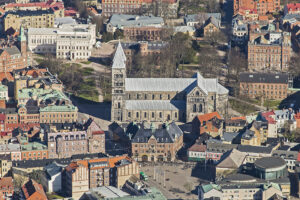
Welcome to Lund!
Religious heritage is a fundamental part of Europe’s cultural landscape. Buildings, traditions and artefacts from different religions tell us about our past and how our identity and values have been forged over time. Yet, all this cultural wealth faces a major challenge: sustainability.
Every year, thousands of churches, synagogues, mosques and other religious buildings are threatened by abandonment, disrepair, lack of financial resources, environmental factors, the decline of religious communities, lack of support from local communities and governments, neglect, and many other problems. As UNESCO and ICOMOS have stated, guaranteeing the sustainability of this heritage is key to passing on to future generations an essential part of our culture.
The 2023 FRH Biennial Conference will bring together representatives from heritage organisations, researchers, policy-makers and experts from different fields to help shed light and stimulate the debate on how to address these challenges and present some examples of good practice. In order to examine sustainability in the most comprehensive way, we have structured the conference around four interconnected sub-themes: economic sustainability, ecological sustainability, cultural/spiritual sustainability and social sustainability.
It is no coincidence that the venue for this conference is Lund, a flourishing religious centre in the 11th century that became the seat of the archbishop of the Scandinavian countries in 1103. Lund Cathedral still bears witness to that glorious era and is an example of evolution and adaptation to the new times.
We thank our local partner the Diocese of Lund (Church of Sweden), also a founding member of FRH, for their support in organising the conference.
Let’s make this an inspiring and fruitful event!
Pilar G. Bahamonde, President of FRH
Lilian Grootswagers, President of the FRH Advisory Board
Greetings from the Diocese of Lund
The Church of Sweden and in particular the Diocese of Lund welcome you to the 6th Biennial Conference. It is with joy, enthusiasm and pride that we arrange this gathering together with FRH, Future for Religious Heritage. After many years of digital meetings and restrictions regarding physical meetings it is extra important and rewarding to meet each other again, face to face.
The Diocese of Lund is one of thirteen dioceses in the Church of Sweden. We are situated in the far south, right next to continental Europe. Our region has been inhabited since thousands of years. The close communication with Europe has been, and still is, a given. Knowledge, culture and faith has been imported and exported. The FRH conference 2023 is a natural part of this continuous exchange and interplay between Europe’s different regions.
The theme for our conference is European Sustainable Religious Heritage. The choice of theme was a joint decision made by the FRH and the Diocese of Lund. The work with sustainability has a high priority in the Church of Sweden particularly since the publication of A Bishops’ Letter About the Climate in 2014. The Church of Sweden roadmap for the climate aims for a climate neutral church in 2030.
Spiritual and existential aspects are highlighted in the church’s sustainability work. We hope that the conference provides us all with both the insight and the inspiration that is necessary in order to hand on our common European cultural heritage to future generations.
The Covid pandemic and the ongoing war in Ukraine has shown that the issues concerning sustainability run deeper and are more current than we could have guessed. The religious heritage is vulnerable and at the same time carries a potential for large and small communities. Let us discuss the difficult challenges at hand and feel strengthened when we return home.
Welcome to Lund!
Diocese of Lund (Church of Sweden)
CONFERENCE PROGRAMME
Wednesday, 19 April 2023 (pre-conference)
Before the conference, young people from Lund will explore their local religious heritage in a fun learning activity combining history and sports. This activity has been organised in collaboration with Burb and is part of FRH’s Run for Heritage campaign. More information here.
Participants in the informal dinner will be able to register in advance so they don’t have to do it the following morning.
Thursday, 20 April 2023
Venue: Kulturen i Lund. Address: Tegnérsplatsen 6, 223 50 Lund, Sweden (View on Google Maps)
9.00 | Official institutional welcome:
- Swedish National Authorities
- Diocese of Lund
- President of FRH Advisory Board
Before the dinner begins, conference participants will enjoy an organ demonstration and a Sámi music performance by Elin Teilus. The Bishop of Lund will greet the conference participants with a speech. The dinner will end with a final Sámi performance. Dinner will be vegetarian and alcohol-free.
Friday, 21 April 2023
Venue: Kulturen i Lund. Address: Tegnérsplatsen 6, 223 50 Lund, Sweden. (View on Google Maps)
from the National Museum of Ireland currently working in the EU Parliament (Ireland)
Saturday, 22 April 2023
Sámi music performance by Elin Teilus
Music has an unparalleled power to evoke feelings. The music of the Sámi people is one of the clearest examples to be found in Sweden. The Sami traditional way of singing, yoik, is a way of remembering life, like a hymn to living beings, be they humans, animals or nature itself.
Unlike many other types of music, yoiks do not always have a pre-defined musical structure; they can be both, have a definite form, or be improvised. They rely heavily on the singer for the tone, rhythm and message, driving the listener through their inner world.
Elin Teilus is a Sámi singer, yoiker and artist with roots far north in Sápmi. Elin is a touring artist in music and theatre in Sweden and abroad, including for example performances for the Sámi Parliament, and the Swedish Parliament on National television and radio. She is described as a force of nature, with a unique presence and a magical voice, a bringer of the beautiful traditional music of the Sámi into new realms. At the heart of her artistry is the love of the Earth and all living beings.
FRH is overwhelmed to have Elin who will captivate the ears and hearts of our audience with her exceptional voice at the opening of the Conference and in two performances at our Conference dinner.
At the morning performance, Elin will be accompanied by her pianist, Rickard Åström. Rickard is a double Grammy-awarded pianist with roots in world music as well as improvisation and has toured around the globe at international music encounters.
At the Conference dinner, Rebecca Meiselbach will perform with Elin on percussion, piano and guitar. Rebecca brings with her an array of drums and magical sounds, and together they will invoke both the earth and the stars.
Find Elin Teilus on:
– https://www.elinteilus.se/
– Spotify
– YouTube
– Instagram: @elinteilus
Photo Competition awards ceremony
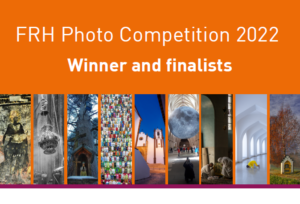
The FRH Photo Competition is an annual contest open to amateur and professional photographers to showcase the beauty, diversity and unique character of places of worship.
The 2022 edition demonstrated once again the great scope of this FRH activity. We are very grateful for the 260 inspiring photographs received from more than 30 countries from all corners of the world!
From the stunning sunset over the Cathedral in Silves (Portugal), to the powerful vision of the botafuimero swinging in the Santiago Cathedral (Spain), or the intimate moment of a man praying at a mosque in Dhaka (Bangladesh), the scenes immortalised by the winner and finalists of the last edition of the competition demonstrate that religious heritage is very alive and makes an essential part of societies around the world.
During the awards ceremony of the Photo Competition, we will have the opportunity to see the best photographs of 2022 and hear the story behind the winning photo from its author, André Boto.
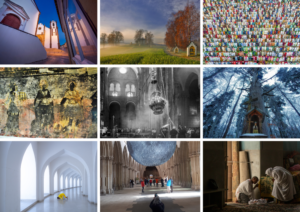
Be sure to check the Photo Competition booklet for a delightful visual journey through religious heritage sites and traditions.
The next edition of the Photo Competition is expected to be launched in June. Subscribe to our newsletter to make sure you don’t miss out!
Religious Heritage Innovator of the Year
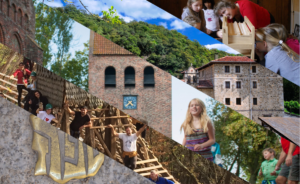
The Religious Heritage Innovator of the Year is an FRH award to showcase remarkable contributions to the preservation, understanding and promotion of Europe’s places of worship (churches, synagogues, mosques, chapels, pilgrim routes, etc.)
The competition launched for the first time in 2022 under the theme of sustainability. The winning and four finalist projects of this first edition exemplify the different facets of sustainability and demonstrate that innovation does not have to be digital.
During the awards ceremony, we will have the opportunity to listen to Lydia Vroegindeweij, founder of Orgelkids; representatives and volunteers of Asociatia Monumentum; and Dani Rotstein, founder of Jewish Virtual Tourism.
Check the Religious Heritage Innovator of the Year booklet for more information about the winning and finalist projects:
The next edition of the Religious Heritage Innovator of the Year is expected to be launched soon. Subscribe to our newsletter to make sure you don’t miss out!
Lund Cathedral, one of the oldest in Scandinavia
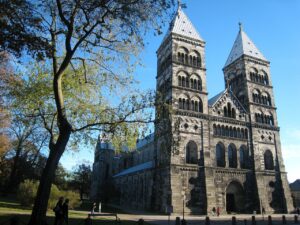
No other building in Lund attracts as much attention as the Cathedral. The construction of Lund Cathedral began in 1080, when the city was already an important religious centre in Scandinavia. Shortly afterwards it became the seat of the bishop of the Nordic Countries. It is one of the oldest cathedrals in this latitude. Its Romanesque features remain latent along with elements added in later restorations and works.
One of the most distinctive features of the cathedral are its two towers, erected during extensive restoration work in the 19th century.
The crypt of the Cathedral is one of the best examples of medieval architecture in the Nordic Countries. One of its pillars features a figure of a man embracing the column. Popular tradition identifies him as the giant Finn, a legendary character linked to the construction of the Cathedral.
Another highlight of the cathedral is the astronomical clock located next to the entrance. The clock was built in the 15th century. In addition to the hours of the day, it also marks the lunar phases, the signs of the zodiac and the days of the week.
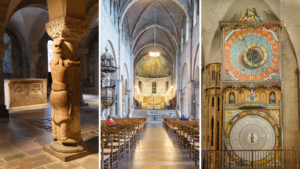
The legend goes that the monk in charge of the construction of the Cathedral asked Finn, a giant troll, for help. The giant accepted with one condition: before the Cathedral was finished, the monk would have to guess his name. If not, he would have to bring him the sun, the moon or his own eyes. It happened by chance that the monk heard the wife of the troll singing a lullaby to their child and caught his name: Finn. The monk returned to the Cathedral and cried out the name of the troll, who was about to set the last stone. Upon hearing its name, the troll became enraged and went to the crypt to tear down the building, but before he could do so, he and his family turned to stone.
All Saints’ Church, a privilege venue for our conference dinner
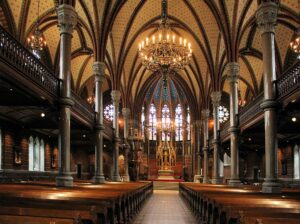
Our conference dinner will take place at the 19th-century Church of All Saints, a stunning neo-gothic building just a 10 minute walk from the Cathedral and our Conference venue. A wonderful opportunity for participants to meet, exchange ideas, and explore this church!
To liven up the evening, the conference dinner will be accompanied by an organ music demonstration and two performances by Sámi singer Elin Teilus. As host of the conference, the Bishop of Lund, Johan Tyrberg, will also address the participants.
We hope you enjoy it!
Meet the speakers
Economic sustainability
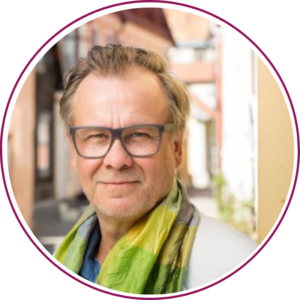
Christer Gustafsson
Professor in Conservation at Uppsala University (Sweden)
Keynote speaker. Christer Gustafsson is a full professor in Conservation at Uppsala University. His trans-disciplinary research is focusing on boundary-spanning challenges and opportunities for cultural heritage as a driver for sustainable growth and heritage-led innovation-driven regional/urban development. He is also ICOMOS Advisory Committee Officer, Secretary-General for ICOMOS International Scientific Committee on Economics of Conservation and Vice Chairman of the expert panel for the European Heritage Label (appointed by the European Commission). He is currently engaged in the EU Horizon 2020 project CLIC – Circular Models Leveraging Investments in Cultural heritage adaptive reuse, research on Fields of Creative Powers as well as the EU Horizon 2020 project RURITAGE.
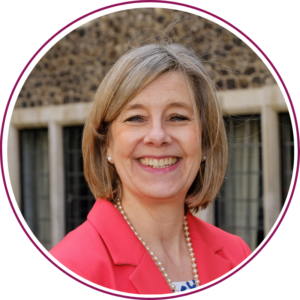
Claire Walker
Chief Executive of the National Churches Trust (United Kingdom)
Claire Walker has been Chief Executive of the National Churches Trust since 2011. She works closely with the trustees to provide strategic leadership for the charity. Claire has a wide range of fundraising experience in the charity sector, having been a senior member of the fundraising team at Parkinson’s UK for over 7 years. She has also worked at The Royal British Legion and for the Phyllis Tuckwell Hospice in Farnham, Surrey. Claire studied Mathematics at the University of Kent and previously taught up to Further Maths A Level in London and Madrid. She has a special interest in musical theatre and used to run her own theatre company, producing four musicals and taking part in many more.
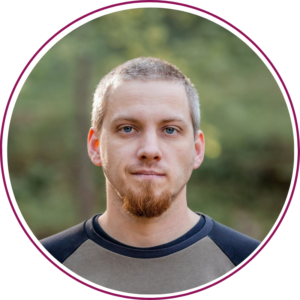
Peter Palgut
Gotická cesta Association (Slovakia)
Volunteer and member of Gotická cesta Association, specialised in tourism and tour guiding with a broad background thanks to a master’s degree in Regional development and regional geography, focused on historical monuments of the Germer region in Slovakia. Currently working as a manager of a local Tourist Info centre in the town of Rožňava. Enthusiastic about both natural and cultural heritage as an integral part of learning about the environment and society we live in.
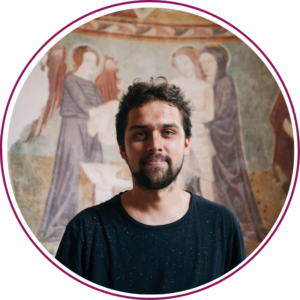
David Raška
Gotická cesta Association (Slovakia)
David Raška was born on August 3 1991 in Kyjov, Czech Republic. He studied architecture and urbanism at Czech Technical University in Prague and ENSA Paris Val de Seine. His specialisation is patrimony protection, currently working on Building Archaeology Surveys. He is a member of The Gothic Route Association, responsible for cultural events and restoration projects. He lives in Bratislava, Slovakia.
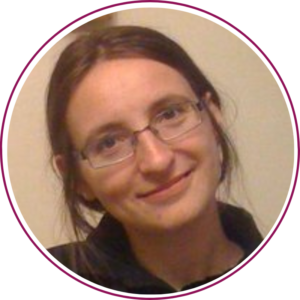 Kateryna Zorya
Kateryna Zorya
Södertörn University (Sweden)
Kateryna Zorya is a PhD candidate in the study of religion at Södertörn University. Her primary work is in the history of post-Soviet esotericism and the transmission of religious currents via the book trade. Kateryna has worked with the Religion on Fire project as a field worker and is involved in the war relief effort for Ukraine.
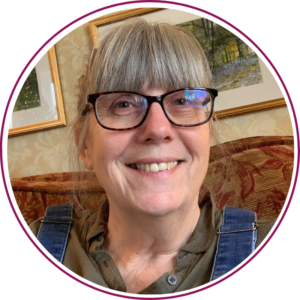
Rev Ruth Dowson
Senior Lecturer at the UK Centre for Events and Management, Leeds Beckett University (United Kingdom)
Rev Ruth Dowson has 25 years of professional experience in events management. She has been a Senior Lecturer at the UK Centre for Events Management at Leeds Beckett University for 14 years. She is currently completing her PhD in Eventization of Faith. She is co-author of several publications: Event Planning and Management (Kogan Page: 3rd ed. 2023); Spiritual and Religious Tourism (CABI: 2019); Death and Events (Routledge: 2022). The main concepts she addresses in her work are: Events and Church, Venueing, Use of Religious Buildings for Events, Event Transport and Alternative Venues. Ruth Dowson was ordained in the Church of England in 2012. She is an Associate Priest at All Saints’ Parish Church in Bingley. Ruth Dowson is also Fellow of the UK Higher Education Academy and Honorary Chaplain of the English Civil War Society.
Ecological sustainability
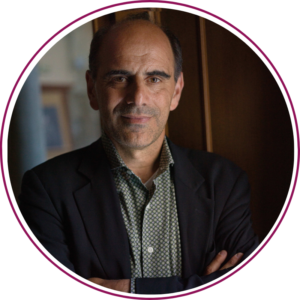
Shaul Bassi
Director of the MA in Environmental Humanities at Ca’ Foscari University of Venice (Italy)
Keynote speaker. Shaul Bassi is the director of the MA in Environmental Humanities at Ca’ Foscari University of Venice. He is the co-founder and president of “Beit Venezia. A Home for Jewish Culture” and was the coordinator of the cultural projects related to the 500th anniversary of the Ghetto of Venice (1516-2016), where he produced the first site-specific performance of Shakespeare’s The Merchant of Venice. His publications include Shakespeare’s Italy and Italy’s Shakespeare: Place, “Race,” and Politics (Palgrave Macmillan 2016); Venice and the Anthropocene. An Ecocritical Guide (co-editor, Wetlands 2022); Living Under Water. Jewish Views on the Environmental Crisis (with A. Arnovitz, Damocle 2022).
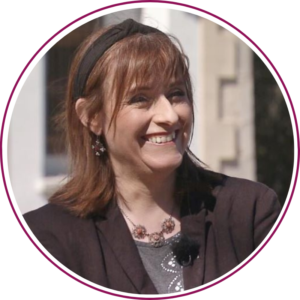
Silvia Aulet
Researcher in spiritual and religious tourism at the University of Girona (Spain)
Silvia Aulet, PhD, is a professor at the Faculty of Tourism of the University of Girona. Her research on religious tourism and pilgrimages focuses on the management of sacred sites and in related areas such as peacebuilding, intercultural dialogue and cultural accessibility. She has participated in several research projects both as an academic researcher (European projects) and as a consultant. She is a member of the Editorial Board of the International Journal on Religious Tourism and Pilgrimage, the association Future for Religious Heritage and the Unitwin UNESCO Chair “Culture Tourism and Development”. She is the director of the UNESCO Chair on Cultural Policies and Cooperation at the University of Girona.
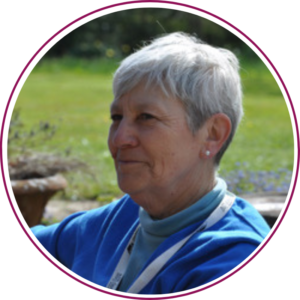
Jennie Hawks
Founder of the Building Crafts and Conservation Foundation (United Kingdom)
Jennie Hawks has had a wide experience of working in the voluntary, public and private sectors, starting her working life as a teacher. Her work encompassed running an EU Network in work experience for disabled undergraduates and graduates, managing a London Centre for a US university, as well as experience of equal opportunities management in the private sector, and chairing health service complaints. For several years she was the Historic Places of Worship Support Officer for the Diocese of Norwich, England, with over 600 rural and urban churches encouraged to be open and for use by local communities.

Bogdan-Ilie Cocieru
Stefan cel Mare University of Suceava (Romania)
Candidate for a Doctor’s Degree in History at Stefan cel Mare University of Suceava. Between May 2020 and December 2022, Cocieru worked as a Scientific research assistant at the National Institute of Research-Development in Tourism. Since 2007, he has been involved in several cross-border cooperation projects between Romania and Ukraine, co-funded by the European Union, as a member of the management team from Stefan cel Mare University of Suceava. The most complex cross-border cooperation project was “Historical and ethnographic heritage – part of the sustainable development of tourism in Bukovina (HERITAGE)”, between May 2012 and December 2015.
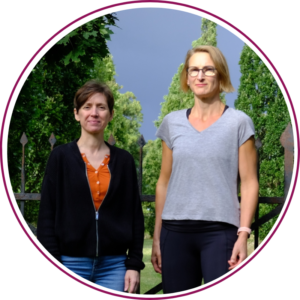 Helene Båtshake & Kristina Nilsson
Helene Båtshake & Kristina Nilsson
Project managers of the BURB project (Sweden)
What do today’s youth want cemeteries to look like, now and in the future? The Burb project wants to awaken children’s interest and educate them about the multifaceted cemeteries. The project managers are Helene Båtshake, PhD in pedagogy and BSc in Landscape Planning; and Kristina Nilsson, pedagogue, scriptwriter and director. More information on the project’s website: www.burb.se
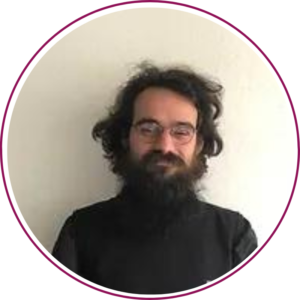 Christos Kakalis
Christos Kakalis
Co-director of the Architecture Research Collaborative of the School of Architecture, Planning and Landscape at Newcastle University (United Kingdom)
Dr Christos Antonios Kakalis is a Senior Lecturer in Architecture and the Co-director of the Architecture Research Collaborative of the School of Architecture, Planning and Landscape at Newcastle University. He is a registered architect (Greece), has obtained the interdisciplinary MSc ‘Design, Space, Culture’ (NTUA, Athens, Greece), holds a PhD in Architecture (University of Edinburgh), and has also studied Theology (IOCS, Cambridge). He has been practising for more than 15 years now and has conducted research and taught at different universities (in Greece, UK and Canada). His work focuses on the conditions of embodied experience of architecture and natural landscape with special emphasis on religious landscapes.
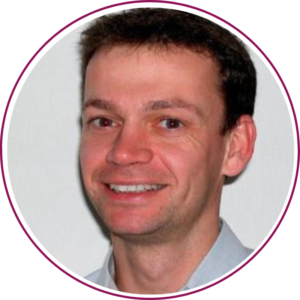 Neil Bufford
Neil Bufford
Deputy Head of the School of Architecture, Planning and Landscape at Newcastle University (United Kingdom)
Dr Neil Burford is a Reader in Architecture and Deputy Head of the School of Architecture, Planning and Landscape at Newcastle University. He is a professionally accredited award-winning architect with over 30 years of experience in education and professional practice. He developed his academic career at the University of Dundee and joined SAPL at Newcastle University in 2017. His work involves a combination of experimental research-led practice, R+D in innovative construction systems, and engagement work for decarbonising rural communities. He has also been involved in policy work for Scottish Government advising on carbon emission reduction targets in new buildings.
European Commission representative
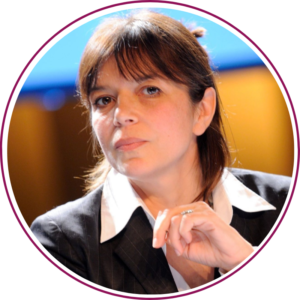
Catherine Magnant
Head of Cultural Policy at the European Commission’s Directorate-General for Education and Culture (DG EAC) (Brussels)
Catherine Magnant is Head of the Cultural Policy Unit at the European Commission’s Directorate-General for Education and Culture since 2020. She is a French citizen, graduated in international relations and Russian language at Sorbonne University in Paris. She started her career in Moscow, where she headed the Press and Information Section of the European Commission Delegation. Back in Brussels, Belgium, she was part of the team preparing for EU enlargement to Central and Eastern Europe. She also coordinated the 2007 European Year of Equal Opportunities for all. Passionate about the transformative power of culture, she moved to cultural affairs in 2011. In 2018 she led the Commission’s Task Force for the European Year of Cultural Heritage 2018, which took place in 37 countries.
Social sustainability
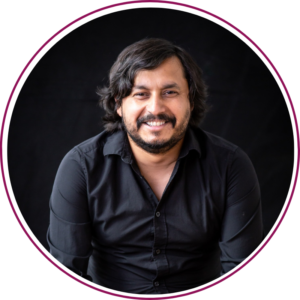
Tharik Hussain
Travel writer and journalist specialising in Muslim heritage (United Kingdom)
Keynote speaker. Tharik Hussain is an author, journalist and heritage activist. His work often serves to counter popular and authorised narratives. Tharik’s debut book, Minarets in the Mountains; A Journey into Muslim Europe, won the British Guild of Travel Writer’s Adele Evans Award for Travel book of the year. He has produced award-winning radio for the BBC World Service on America’s earliest mosques and developed Britain’s very first Muslim heritage trails in Woking, Surrey. He is also a Lonely Planet author for whom he specialises in marginalised narratives and most recently wrote the very first chapter to explore Muslim heritage in a guidebook to Britain. Tharik is an advisor to the Foundation of Jewish Heritage and the Institute of Islamic Art Thailand and a Fellow at the Royal Geographic Society and the University of Groningen’s Centre for Religion and Heritage.
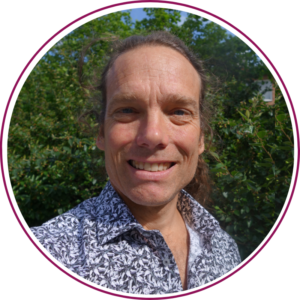 Tom O’Dell
Tom O’Dell
Professor in Ethnology at Lund University (Sweden)
Tom O’Dell is Professor of ethnology at Lund University. His research focuses upon the entwinement of cultural and economic processes in everyday life contexts. He is currently working together with Associate Professor Lizette Gradén on a project entitled, “When the budget is tight, whose heritage counts most?” which examines how economic considerations affect how museums work with cultural heritage. O’Dell and Gradén are also currently working with the Church of Sweden examining the question of how underused churches can be used in new and more inclusive ways.
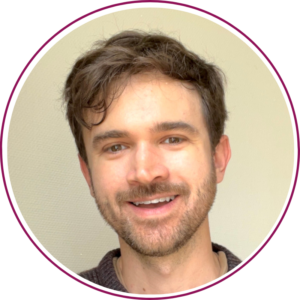
Lee Dallas
Project Assistant at the division of Ethnology, Lund University (Sweden)
Lee Dallas is a project assistant at the Lund University division of ethnology. He researches meaning-making practices in everyday life, with a focus on cultural heritage, media, and mobility practices (e.g. walking). He is currently working on a collaborative project that explores how to inclusively re-purpose underused churches in southern Sweden. Dallas is also an editorial assistant for the Game Studies journal, and a teaching assistant for the MACA (Master of Applied Cultural Analysis) program at Lund University. He is originally from the USA.
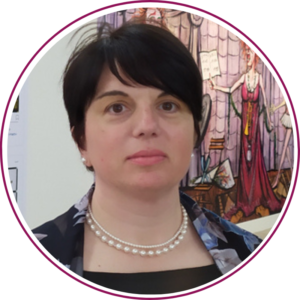 Olimpia Niglio
Olimpia Niglio
Vice-president of ICOMOS PRERICO (International Council on Monuments and Sites, Committee for Places of Religion and Ritual) (Italy)
Olimpia Niglio is a professor in Comparative History of Architecture and Architectural Restoration. Since 2022 she has been appointed at the University of Pavia (Italy). Until 2021 she was professor at the Hosei University in Tokyo and at Kyoto University Graduate School of Human and Environmental Studies, Japan. She is a visiting professor in several universities between Asia and America. She studied at the University of Naples “Federico II” where she also obtained the Ph.D, Executive Master at Business School Sole24ore and Post Ph.D (Miur) in Conservation of Architectural Heritage. She is the director of the EdA Esempi di Architettura International Research Center, vice-president of ICOMOS PRERICO (International Council on Monuments and Sites, Committee for Places of Religion and Ritual) and is also the vice-president of ACLA, the Asian Cultural Landscape Association, at SNU, Korea.
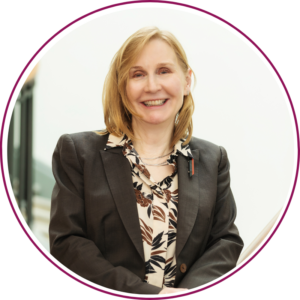 Anne Grady
Anne Grady
Seconded National Expert on Cultural Heritage from the National Museum of Ireland to the CULT Committee of the European Parliament (Ireland)
Anne is a seconded expert from her role as Head of Development with the National Museum of Ireland to the CULT Committee of the European Parliament, working with the Secretariat of the Committee. Amongst other duties, she co-ordinates and assists Members in drafting legislative and non-legislative reports and opinions, and defines policy lines and advises on the European Commission’s proposals relating to cultural heritage. She also ensures the continuation of the legacy of the European Year of Cultural Heritage 2018 as well as raising awareness of sustainability, and in particular, the impact of climate change on cultural heritage. Anne presents at the conference in a personal capacity.
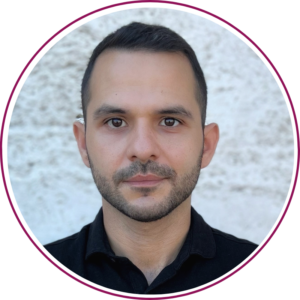 Rolando Volzone
Rolando Volzone
Architect and post-doc researcher (Portugal)
Rolando Volzone is an architect, working on building rehabilitation, post-doc researcher at DIN MIA’CET-Iscte and CHAIA-UÉ, and assistant professor and lecturer at MSc and PhD programs in Portugal. He is the coordinator of the international conferences “Architectures of the Soul”. Since 2020 he joined Portuguese and European projects and two COST Actions. He is member of ICOMOS Portugal and integrated two international committees, (PRERICO and CIPA Heritage Documentation), as well as member of the Scientific Advisory Board of FRH. He is the author of several publications, editor of two international books, and reviewer of indexed scientific articles, attending numerous national and international conferences.
Cultural/Spiritual sustainability
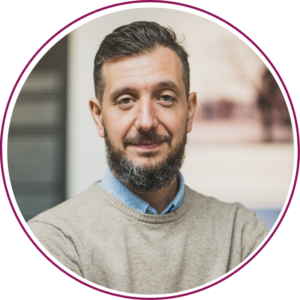 Jakub Nowakowski
Jakub Nowakowski
Director of the Galicia Jewish Museum (Poland)
Keynote speaker. Jakub Nowakowski was born and raised in Kazimierz, the former Jewish district of Kraków. Coming from a non-Jewish family that lived in Kazimierz for generations, from an early age he was compelled to research the history of his neighbourhood. In 2007 he graduated from the Department of Jewish Studies at the Jagiellonian University, writing a thesis on Jewish resistance in Kraków during the Holocaust. In 2005 Nowakowski joined the staff of the newly opened Galicia Jewish Museum in Kraków. In 2010, after an international competition, Nowakowski was appointed the Galicia Jewish Museum’s director.
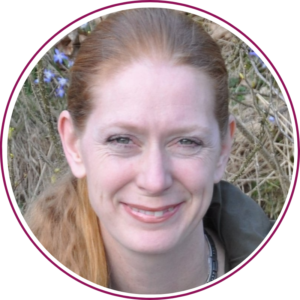
Britta Roos
Head of the Cultural Heritage Department at the County Administrative Board of Skåne (Sweden)
Britta Roos is head of the Cultural Heritage Department at the County Administrative Board of Skåne. She has extensive experience in cultural heritage administration and the application of the Cultural Heritage Act, including work with the safeguarding and protection of ecclesiastical heritage. She has a licentiate degree from the Department of Conservation at the University of Gothenburg, focusing on preservation and restoration of historic buildings.
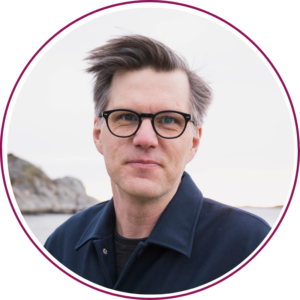 Klas Grinell
Klas Grinell
Development manager and research coordinator at Gothenburg Museums (Sweden)
Klas Grinell is an author and historian of ideas. He is a Development Manager and Research Coordinator at Gothenburg Museums is a former director of the Center of European Research at the University of Gothenburg. He has previously published, among others, Reflections on Reason, Religion and Tolerance (2014), The Imam, the Coup and the Servants (2017) and The Philosophical History of Islam (2019).
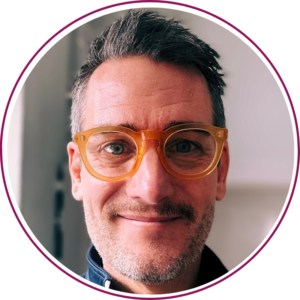 Matthias Ripp
Matthias Ripp
Chair of the UNESCO world heritage working group on historic city centres of the German Association of Cities (Germany)
Dr. Matthias Ripp, a senior heritage manager with a background of historical geography and heritage studies, is coordinating the “Old Town of Regensburg with Stadtamhof” site. He is active in numerous networks and an expert for heritage-based urban development, urban resilience and heritage interpretation. Being active in numerous networks such as Heritage Europe and ICOMOS he has coordinated the EU HerO (Heritage as Opportunity) project. He chairs the UNESCO world heritage working group on historic city centres of the German Association of Cities, is a member of the European Heritage Panel and an elected Member of the German Commission for UNESCO. Since November 2011 he has also been regional coordinator for the North West European and North-American region of the Organisation of World Heritage Cities (OWHC).
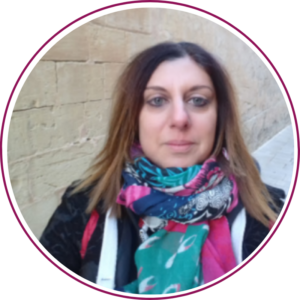
Caterina Ruscio
Archaeologist and museum educator (Italy)
Caterina Ruscio is an archaeologist and museum educator. She graduated in Archaeology at the University of Rome “La Sapienza”, completed a Master’s in Management of Archaeological Sites from the University College of London. She is a PhD candidate at the University of Malta and her main interest is management of tourism in historical religious sites. She has collaborated with the Vatican Museums and the archaeological area under Saint Peter’s Basilica. She is currently a lecturer in early Christian art at the American University of Rome. Caterina worked with the Pontifical University “San Tomaso d’Aquino” in Rome, as a lecturer in interreligious dialogue courses.
.
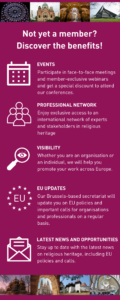
FRH Conference Committee
Heikki Ranta and Susanne Urban, co-chairs
Henrik Lindblad
Silvia Aulet
Lilian Grootswagers
Jan Jaspers
Jennie Hawks
Thorsten Kruse
Daniel Vanden Broecke
Samidha Pusalkar
Organised by

In partnership with

Funded by
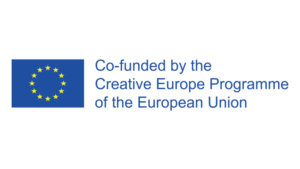




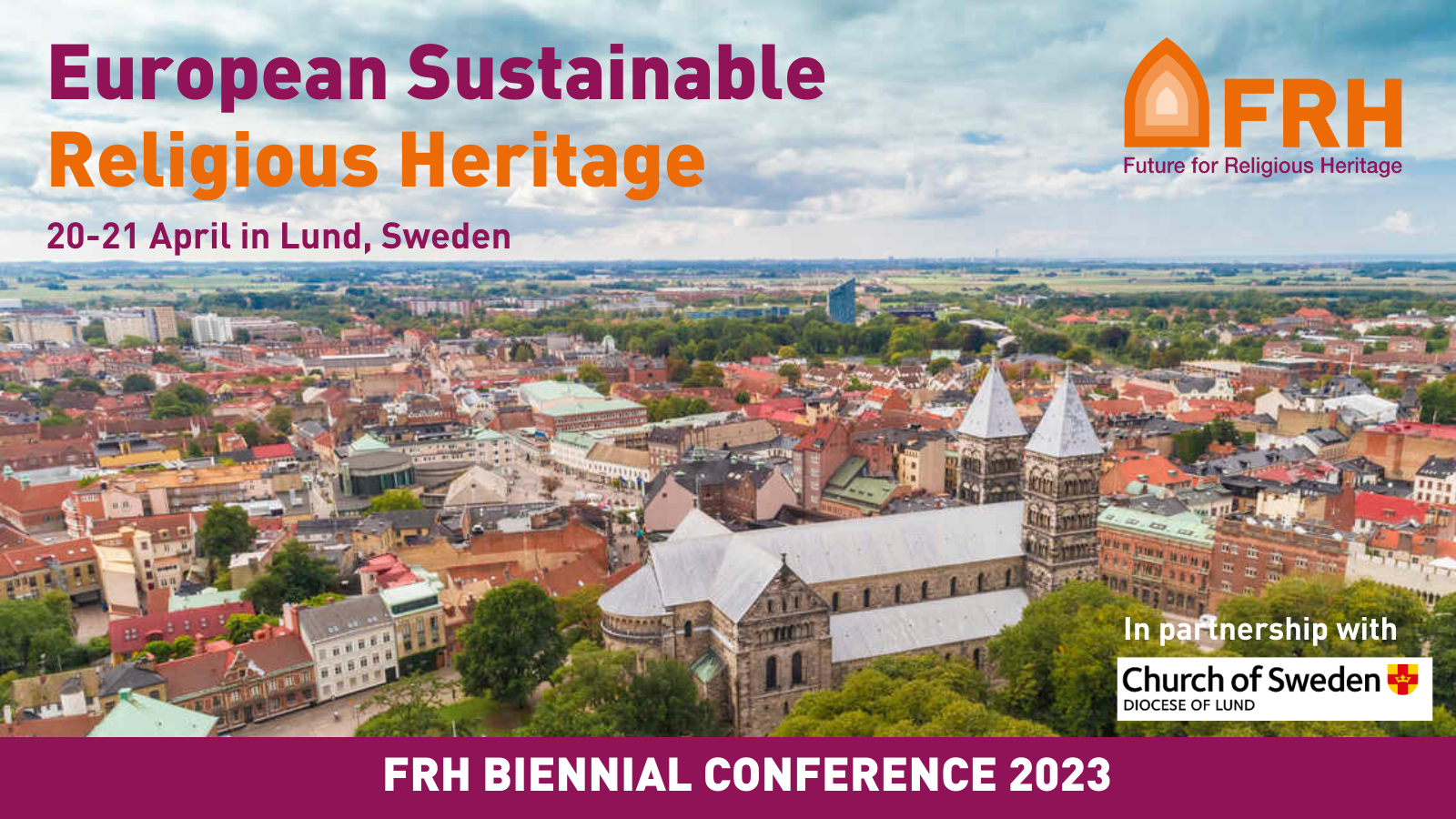

Follow us: